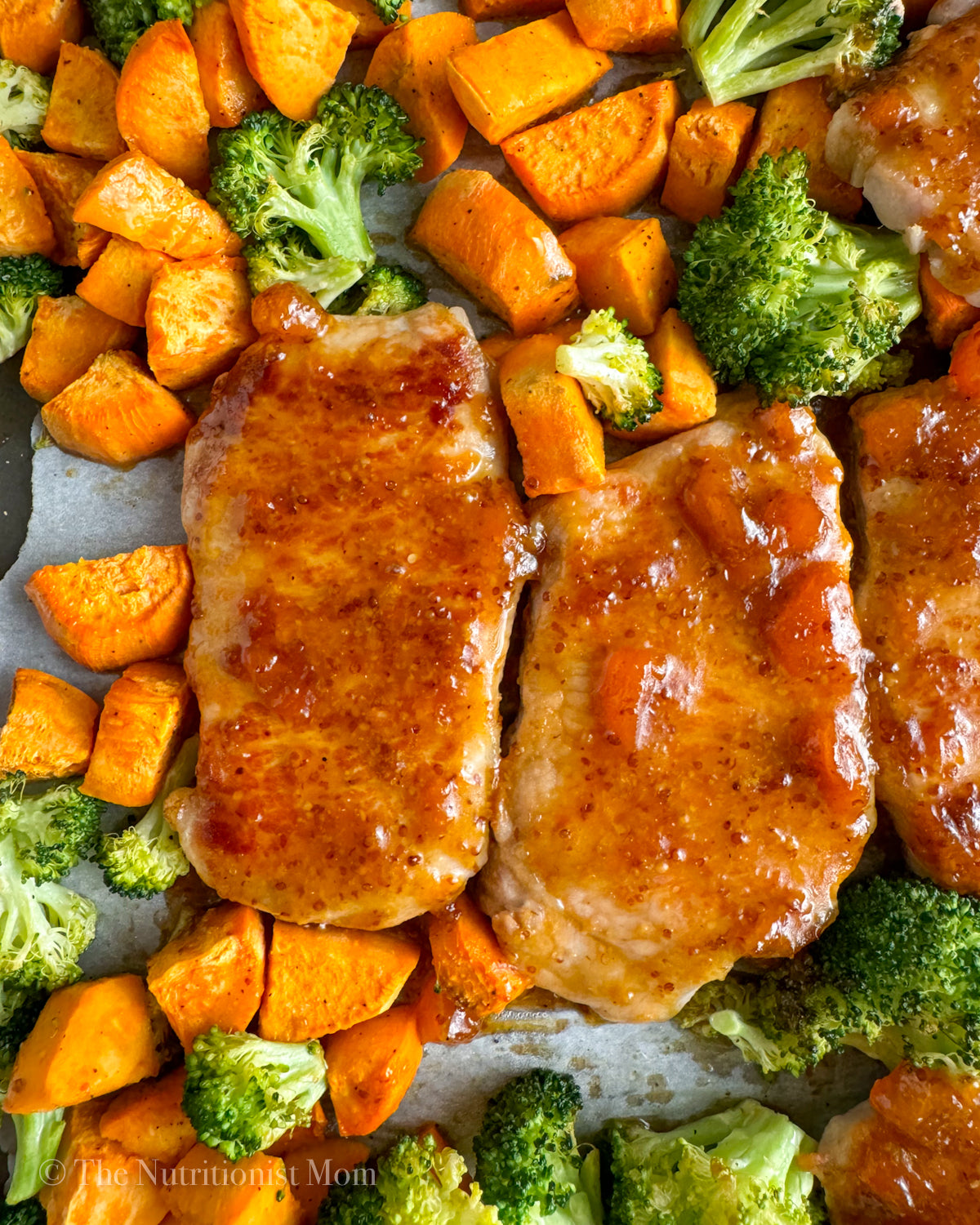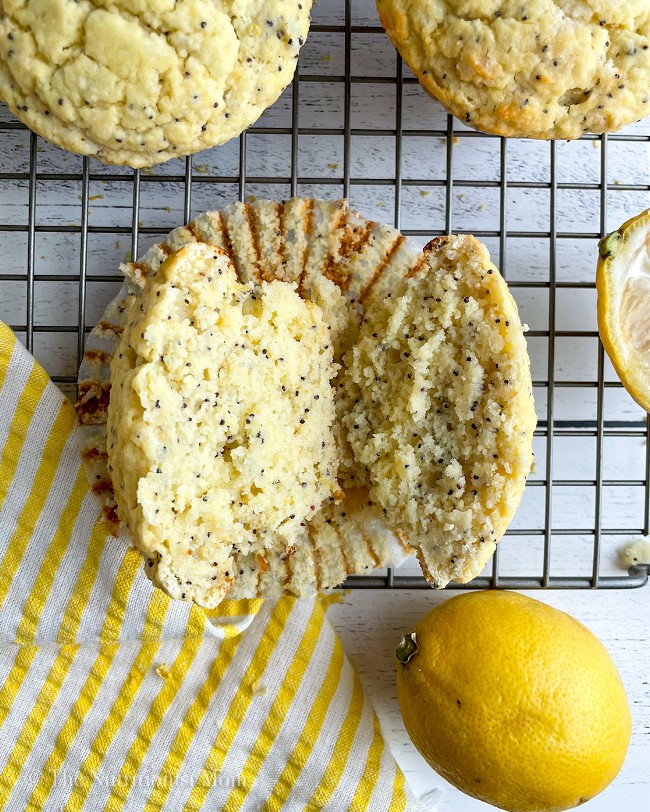LEMON POPPYSEED COLLAGEN PROTEIN MUFFINS
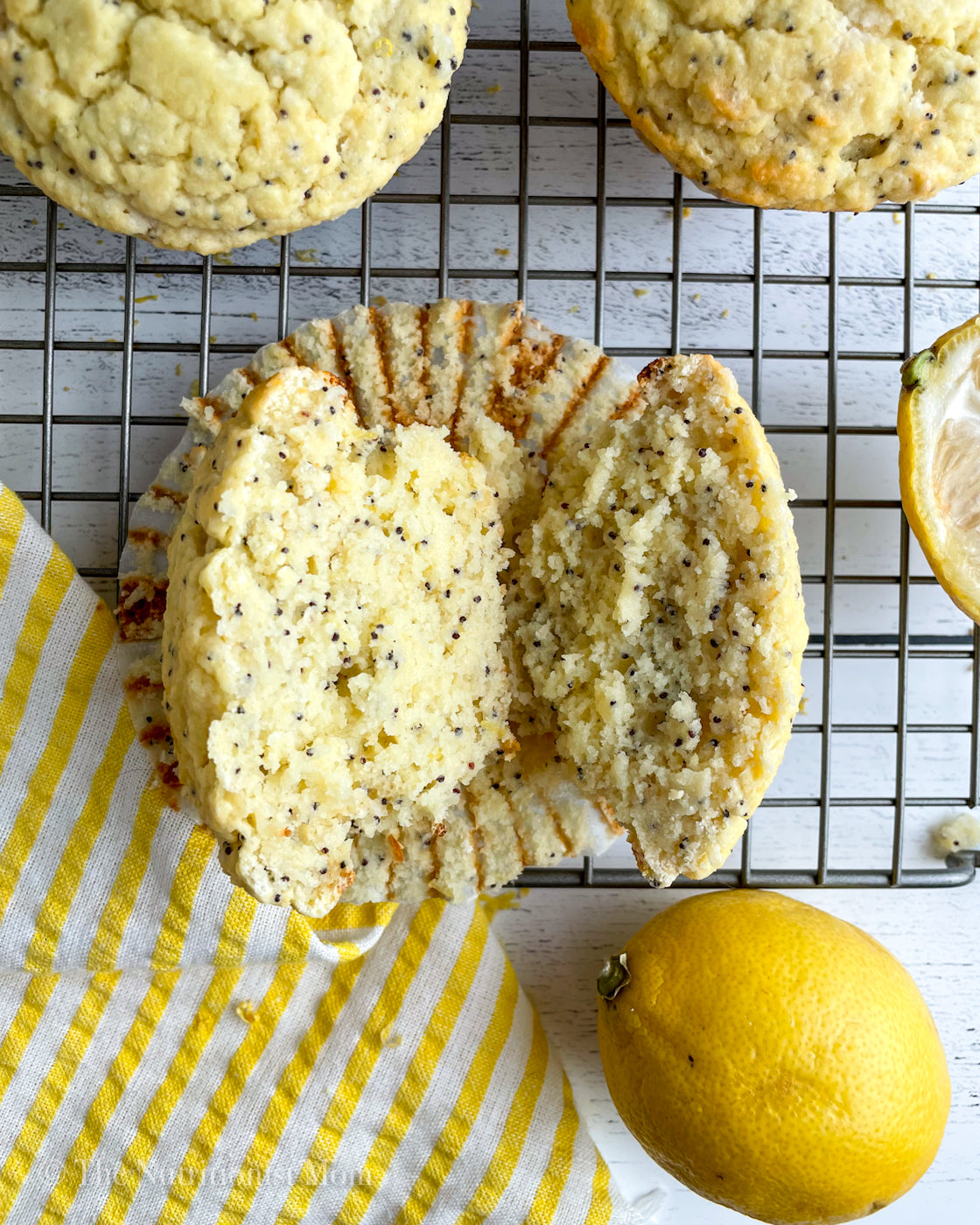
These Lemon Poppyseed Collagen Protein Muffins are gluten-free, dairy-free and easily made Paleo! I love making baked goods with some sort of protein because it transforms them from a “treat” to a substantial snack that will hold you over for hours. I mean, why NOT have fluffy lemon poppyseed muffins with sweet citrus flavor, no added sugar, and the added benefits of collagen?
You might also like my Chocolate Cherry Collagen Muffins, Blueberry Collagen Protein Muffins, or my Banana Collagen Protein Muffins!
Did you know? Collagen protein has proven beneficial for treating joint pain and stiffness, osteoarthritis, and rheumatoid arthritis! (source) It's a great addition to omega 3 fish oil and glucosamine for joint pain.

Collagen recommendations and substitutions
For this recipe, I used LIV Body Flavorless Marine Collagen. I love how it practically disappears in baked goods, but adds tenderness and added protein. Marine collagen is also cleaner and more bioavailable than bovine collagen. Feel free to use my code "SARAHWILKINS" for free shipping on all LIV Body products!
If you don’t have collagen, feel free to swap it out for a quarter-cup of gluten-free baking flour or two tablespoons of coconut flour. If substituting whey, casein, or a vegan protein powder, I suggest starting with half as much or 45 grams (these proteins tend to be more absorbent and can "dry out" baked goods).
Flour recommendations and substitutions
In these Lemon Poppyseed Collagen Protein Muffins, I used a combination of gluten-free baking flour, and coconut flour. I love coconut flour in collagen recipes because collagen can make baked goods “goopy," but coconut flour counteracts that! You can also use all-purpose flour, fine oat flour, or cassava flour (for Paleo) in place of the gluten-free baking flour. You can also switch out the coconut flour for twice as much gluten-free baking flour or any of the other suggested flours. I wouldn’t recommend using just coconut flour, as it yields a rather coarse texture when used alone.

Sweetener substitutions
To sweeten these Lemon Poppyseed Collagen Protein Muffins, I used my favorite stevia-erythritol blend that’s organic, calorie-free, and twice as sweet as sugar (making it go farther). You can use any sweetener you like! Just bear in mind, if using erythritol, monk fruit, baking stevia or another sweetener that measures 1-to-1 like sugar, you’ll need up to twice as much.
Egg substitutions
Collagen baked goods need need a little extra help holding together, so I use two whole eggs. If you can’t have eggs, substitute two flax eggs or a vegan egg replacer. You can also use half a cup of egg whites for lower fat muffins, but they won’t be as yellow without the yolks.

Other substitutions
To make these muffins irresistibly moist, I used half a cup of dairy-free plain soy yogurt (can also use unsweetened coconut yogurt). For even more richness I added three tablespoons of melted buttery coconut oil to the muffin mix. You can also use melted vegan butter or avocado oil, or unsweetened applesauce for lower fat muffins!
The signature ingredients are of course fresh lemon zest and juice, and poppyseeds (can sub chia seeds but they won’t be as black or have the aromatic flavor).
Here’s the printable recipe for these Lemon Poppyseed Collagen Protein Muffins! I hope you’ll rate and comment below if you try them 🙂
This post contains affiliate links and is sponsored by LIV Body.
Also in Blog
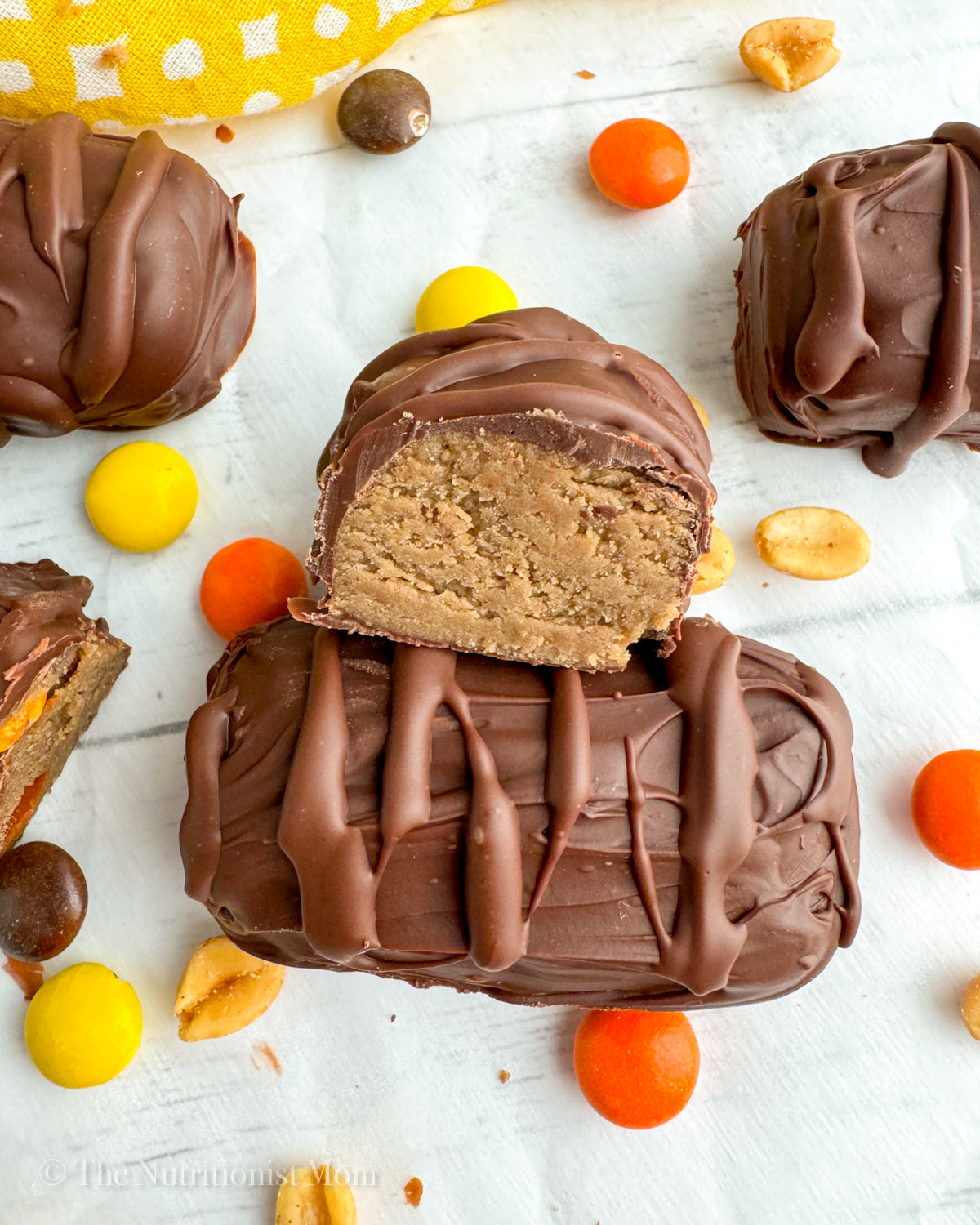
CHOCOLATE PEANUT PROTEIN CANDY BARS (VEGAN)
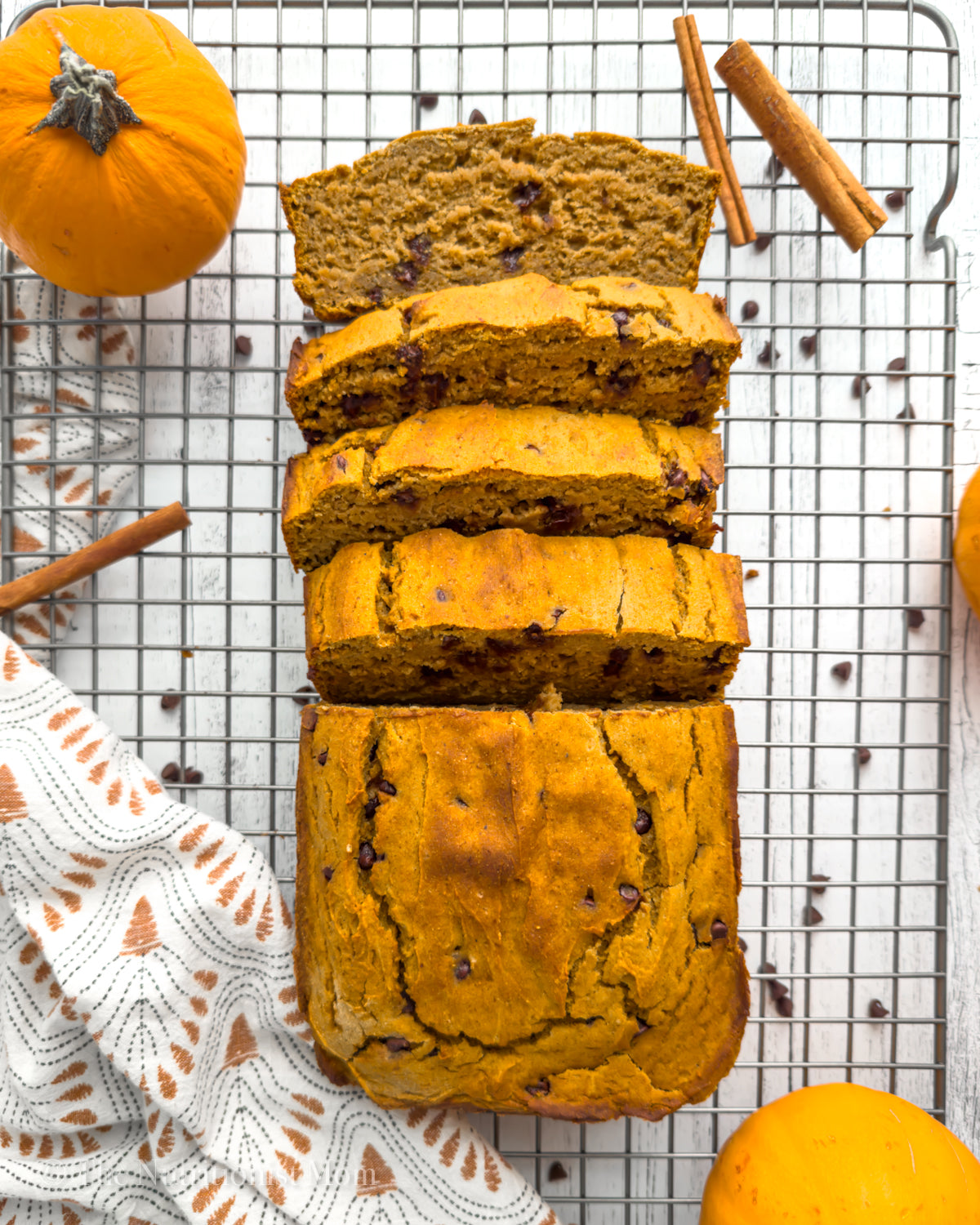
PUMPKIN CHIP PROTEIN BREAD (GLUTEN FREE, DAIRY FREE)
This Pumpkin Chip Protein Bread has a rich, tender texture full of pumpkin spice and chocolate chips (no dry protein bread here). The kids and I can't get enough! Best of all, it's gluten-free, dairy-free, nut-free and easily made egg-free and vegan.
